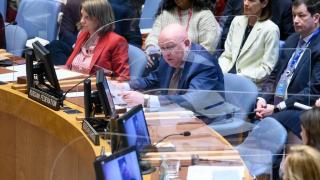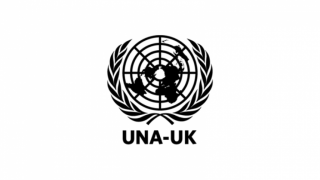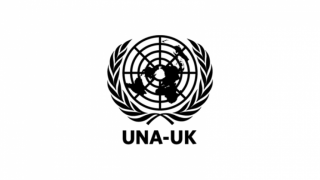
The Security Council (UNSC) veto is back on the agenda after Russia (mis)used its vote to block a resolution calling for it to withdraw troops from Ukraine to widespread criticism across the UN’s membership.
Russia’s actions as well as the wider troubling pattern of veto use in recent years, has highlighted the need for action to address Security Council dysfunctionality.
Although reform of the Council is unlikely to be achieved in the near future as it requires UN Charter reform, there are important initiatives gaining traction that seek to increase accountability and scrutiny of the veto. One such proposal, led by Liechtenstein, is “The Veto Initiative” which aims to extend the role of the UN General Assembly in evaluating and responding to veto-use within the Security Council.
The Initiative would require the General Assembly to convene each time a veto is cast in the UNSC thereby allowing the UN membership to express its views on issues of international peace and security when the Council is blocked. It would apply to any and all vetoes cast, irrespective of the substance of the decision vetoed, and would be open-ended with respect to a possible formal outcome.
A letter from Liechtenstein and 15 other member states outlining the proposal has been sent to all UN ambassadors, asking for their support and explaining the intention to seek approval for the proposal's adoption in the General Assembly.
UNA-UK has supported the Initiative for a number of years along with other measures that, in the absence of Charter reform, will increase the political cost of using a veto and/or empower the General Assembly to step into the breach when necessary. The proposed mechanism would increase accountability between the UN’s two foremost organs – the General Assembly and the Security Council – while supporting inclusive multilateralism through an enhanced role for the wider UN membership.
While Russia’s recent conduct amounts to one of the most egregious abuses of P5 privilege in recent years, the conduct of all permanent members has been the subject of intense and justifiable criticism since the UN’s inception. The legitimacy of the Council, and the UN more generally, is contingent on its effectiveness in dealing with international security issues. All member states have a stake in international peace and security and the General Assembly provides an alternative forum to discuss such matters and one which carries the legitimacy of world opinion. When the states that hold special responsibility for upholding peace and security are in fact doing the opposite, either by directly causing the fallout or by blocking progress, or both, the wider international community must do all it can to step forward.
We urge the UK to build on its positive support for the “Uniting for Peace” resolution (which has empowered the General Assembly to take up the issue of Ukraine) as well as its support for Veto Restraint in situations of mass atrocities, and champion the Veto Initiative.
*The states that co-signed the letter are: Australia, Bulgaria, Costa Rica, Denmark, Estonia, Ireland, Kenya, Kuwait, Latvia, Liechtenstein, Malta, Mexico, New Zealand, Qatar, Sweden, Turkey
Read more:
- Read UNA-UK's latest briefing: Emergency Special Session of the General Assembly on the Russian invasion of Ukraine
- Read UNA-UK's Statement on Russia's invasion of Ukraine
- Read about our recent summit on Ukraine with UN Associations from across the world
- Read about the humanitarian and refugee implications for Europe
- Read more about The Veto Initiative
Photo: Vassily Nebenzia, Permanent Representative of the Russian Federation to the United Nations, addresses the Security Council meeting on the situation in Ukraine. Credit: UN Photo/Loey Felipe






